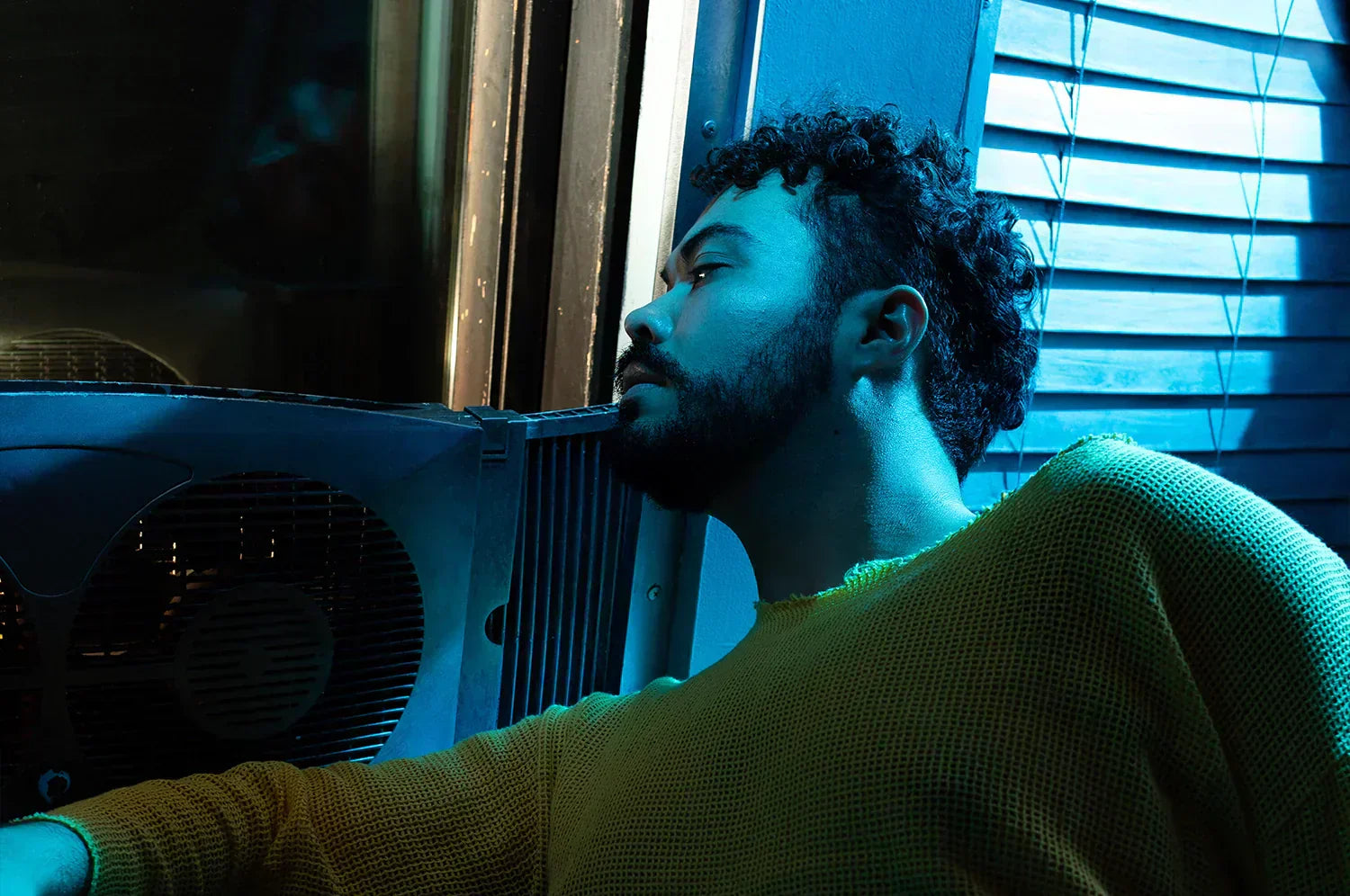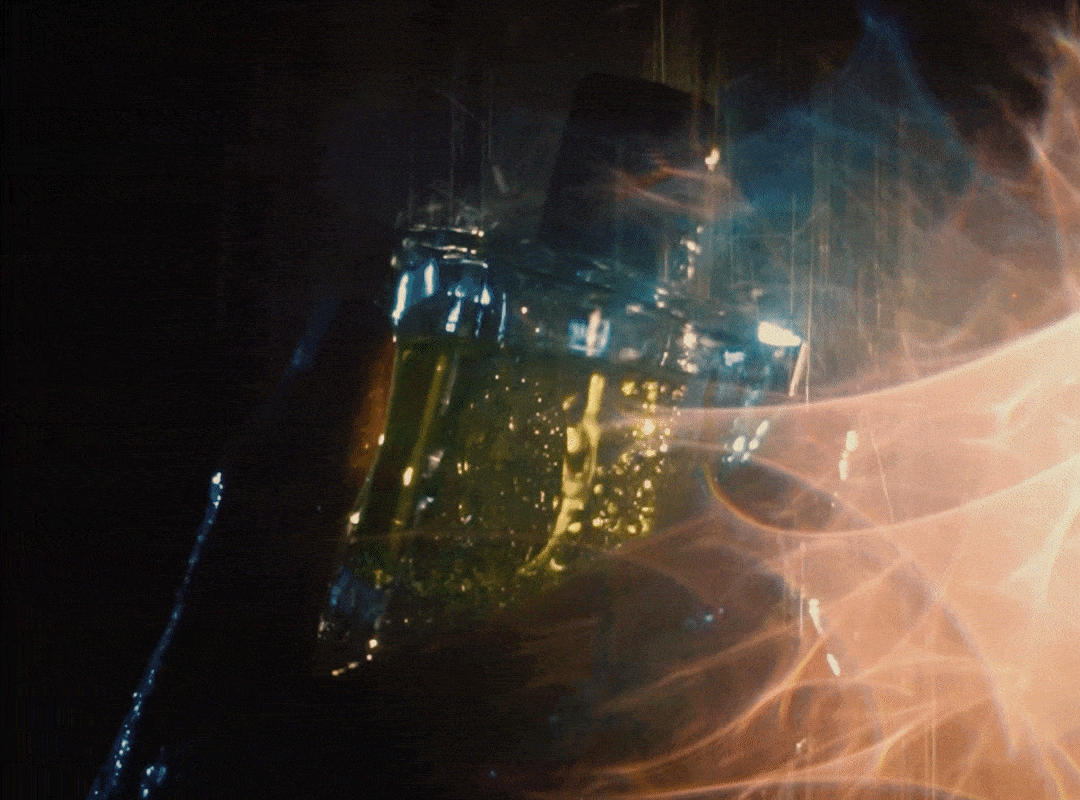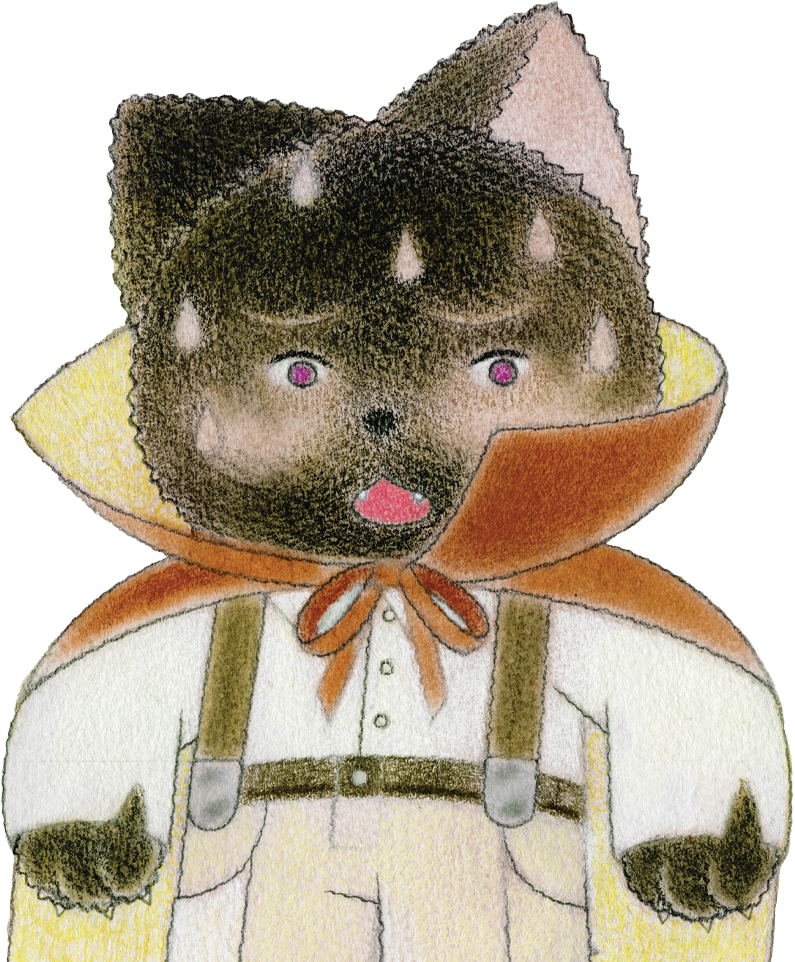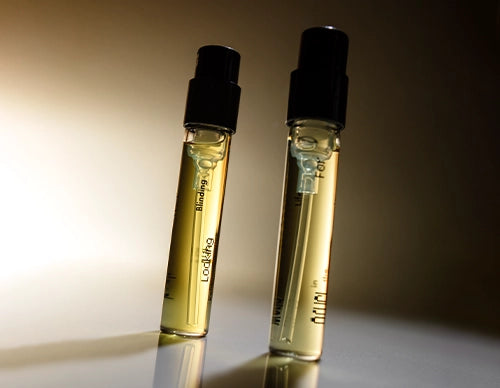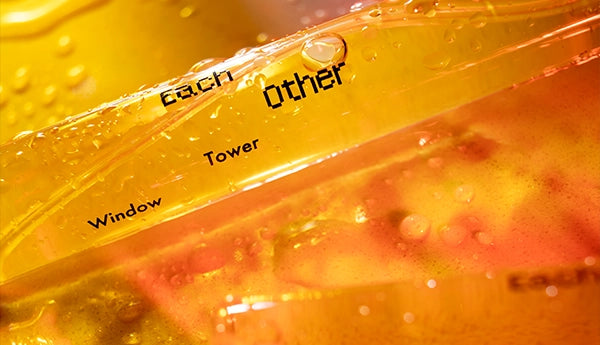Jonah Mutono is a singer, songwriter, and producer based in Los Angeles. Born in London and raised between the UK and Uganda, he released his debut album GERG in 2020 to critical acclaim — with more on the way.


LFEO: Was there an initial spark or event that got you interested in being in music?
Jonah: Hm! I started playing piano when I was 4 and singing when I was 12. It was a language I knew how to speak, and therefore a really natural way to express myself. I get so jealous when someone creates something that lowers my cortisol or flattens my mind — it makes me want to try my hand at it, sometimes unsuccessfully, but it’s an incredibly stimulating process. I wrote my first song when I was 11 so I could sing it in a pop group setting with my friends. But to this day, I don’t know if I’ve officially decided to be “in music.” I realized last year that that first song I wrote ripped off Celine Dion. I just took her melody wholesale and used it proudly. The power she has. Maybe that commitment is coming soon.
LFEO: What’s your advice to people who feel stuck or blocked in their artistic practice?
Jonah: Good question! Honestly, I’d love someone to tell me! I usually take a break, go for a walk, or watch something I know will tear me apart emotionally. I’m not always confident that inspiration will return — but it always does. My advice would be: don’t beat yourself up. We do this because we love it. I’d highly encourage someone to pivot if their creative experience becomes traumatic. You never know — that finishing touch might come to you years later.
LFEO: What are sounds you would like to hear out in the world more regularly?
Jonah: I’m honestly so down for simply the absence of human voices. I’ll take anything else. Truly. That’s the opposite of what you’re asking, but it’s what I’ve been enjoying lately. I had a moment today where I thought to myself: I’m so glad I’m alive so I can hear the sound of footsteps on gravel. There’s nothing I need to hear more regularly. I just want to enjoy the little things — and be surprised by run-of-the-mill sounds I’ve never paid attention to before.


LFEO: How do you soothe yourself?
Jonah: I’m finding — especially in this period of my life — that a practice of gratitude goes a long way. Gratitude has a way of overflowing and seeping into heartache, joy, even confusion. I want it to color everything in my world. I breathe and begin to list the things I’m thankful for, no matter how big or small. I’m still building a foundation. I want gratefulness to be the place I wake up in — and go to sleep in — every day.
LFEO: What are you listening to right now?
Jonah: For months this year, the answer was nothing. I was so proud of myself — it felt like I had ownership of my mind in a way I’d never had before. I’ve dipped my toe back into the well of culture in a more critical way. I couldn’t name anything specific — it’s been whatever’s on the homepage, on my FYP, or in my Messages app. The only thing I’ve truly listened to for enjoyment has been the unreleased music I’m working on.
LFEO: How do you relate to the idea of home? What does home mean to you — and has it changed?
Jonah: I used to ascribe to an idea of home that I absorbed from movies and from people who grew up in one place — home as a location. That’s a valid idea, but it’s not my experience at all. As I’ve traveled, my constant has been the people I love. I could go back to the town where I went to high school, but my family isn’t there anymore. It’s not home.
Home is the late-night phone call with your mom. It’s that destination wedding everyone flew in for. It’s everything. It’s a reason to put one foot in front of the other.
LFEO: How does a song start?
Jonah: A song starts with a feeling. Sometimes I feel like I’m simply scoring my life. If someone says something that flips an emotional switch, I become Julie Andrews in The Sound of Music. It’s corny — but that’s how it feels. Something will happen, and a melody or lyric will float through the air and into my head. If I’m motivated enough, I sing it into my phone.
The other day, a woman at a train station asked me, out of nowhere, if my mom had thrown me out — because I was sitting there with a suitcase. I left that exchange singing a song into my Voice Memos, and when I looked back, she was staring at me in utter confusion.
LFEO: What’s your relationship to performance — as both a craft and a part of your identity as an artist?
Jonah: I’m a studio rat. If people want to hear a song and they’re prepared to pay me for it, I’ll sing it. But I’ll have to perform days of mental acrobatics just to get on stage. I love the process of constructing a record — that’s where my artistic identity truly lies
Don’t get me wrong — once I’m on stage, it’s spiritual and transformational. But I was never the performing child. I was the one building magnificent marble runs and writing stories about teenagers solving mysteries. Catch me in a wig like Sia soon.
LFEO: What are you trying to accomplish within your own personal sound? Do you have a specific palette you work with for Jonah Mutono the artist?
Jonah: I want to evoke the feelings I had when I first started devouring music. I was maybe 10 years old, in Kampala, Uganda, when “Like I Love You” by Justin Timberlake played on Rick Dees Weekly Top 40, and my mouth was hanging open in shock.
I want to recreate that same emotional wave every time one of my songs comes on. There are sounds I’m always drawn to — but the more I think about it, the more I realize they’re tied to that time in my life when music felt magical and rare.


LFEO: How has your music shaped your sense of who you are?
Jonah: That’s changed over time and has never been black and white. Music is an embarrassing pursuit, and a source of pride. It’s a gift I don’t want to waste. Some days I feel like the coolest person in the world, and some days I feel like a poser.
There’s a jester dancing in the back of my mind reminding me there’s a piano hanging overhead that could fall on me at any minute. My music could also be the beautiful red vehicle that races me to my dream life in record time.
Right now, I’m working on detaching that dream from my identity. I want to be a valued, loved member of the community even if I pivot. I don’t want to be the 60-year-old telling young people he used to have a record deal. I want to still be writing — and still be loving it. Talk to me when I’ve found that balance. I’ll probably be looking for a book deal.
LFEO: When you zoom out and look at your life, what do you wish for most?
Jonah: That’s a big question! I wish — and hope — that I’m as much a source of love to the people in my life as they are to me.
I used to wish for stability and constance at whatever cost. But the world is wild right now, and that kind of permanence is promised to no one. I’ll get some version of it, but more than anything, I’m learning how to be better to the people around me. I hope that’s how they remember me.
LFEO: Are dreams important in your practice? Sleeping dreams or aspirational ones?
Jonah: Hm. I like to think of my sleeping dreams as a separate plane of existence — a whole other realm where I live and make decisions. Sometimes I use those decisions to inform how I feel about things in my waking life. I even write songs in my dreams, and occasionally wake up with them in my head and finish them here. I don’t expect to factor them into my practice, but sometimes I just get lucky.
As for starry-eyed ambitions — they completely fueled me at the start of this journey 11 years ago. I still appreciate them. After a recent ego death and years of health concerns, I’m learning how to dream like that again.
LFEO: Do you have any superstitions?
Jonah: No, not really. But if I hear one, I sometimes let it cross my mind when that thing happens. I might let that energy sit in my body just to see how it feels, but I usually let it go.
They’ve never done me any good — so why should I let them control what I do? So far, many a black cat has crossed my path, and nothing happened afterward to prove it was a bad thing. I’d rather those cats were my friends.
LFEO: What keeps you going as a musician?
Jonah: Other people’s work! I continue to be inspired by the creativity of people I’ve known for years, and by my heroes. And you know what? I still want to try my hand at it — and see what I can get away with.





